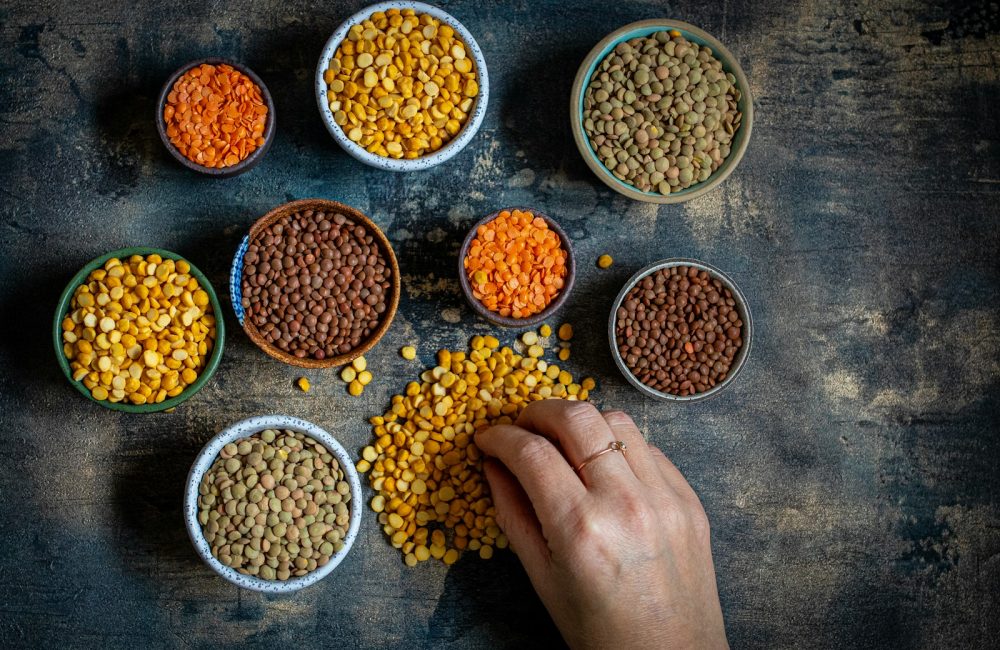When it comes to building muscle and enhancing recovery, protein is the essential nutrient your body needs. It supplies the amino acids required to repair and rebuild muscle tissue after workouts. Whether you’re an athlete, bodybuilder, or someone just looking to maintain lean muscle mass, incorporating high-protein superfoods into your diet can accelerate muscle growth and support muscle repair.
In this article, we’ll cover 21 protein-packed superfoods that not only provide the necessary protein but are also rich in additional nutrients that contribute to overall muscle health.
1. Chicken Breast
Chicken breast is a staple in muscle-building diets because it’s incredibly high in lean protein. A 3-ounce serving of chicken breast contains about 31 grams of protein, while being low in fat. It’s a versatile protein source that can be grilled, baked, or added to salads, making it easy to include in your diet.
Benefits:
- High in lean protein: Supports muscle repair and growth.
- Low in fat: Ideal for lean muscle mass.
- Versatile: Easily incorporated into various meals.
2. Eggs
Eggs are one of the most complete sources of protein, containing all nine essential amino acids. A large egg contains about 6 grams of protein, and the amino acid profile in eggs, particularly leucine, helps stimulate muscle protein synthesis.
Eggs are also rich in vitamin D, which supports bone health and muscle function, and healthy fats found in the yolk contribute to overall health.
Benefits:
- Complete protein source: Contains all essential amino acids.
- Rich in leucine: Promotes muscle protein synthesis.
- Contains vitamin D: Supports muscle and bone health.
3. Greek Yogurt
Greek yogurt is rich in both whey and casein proteins, making it ideal for both immediate and sustained muscle recovery. A 6-ounce serving contains about 15–20 grams of protein. The casein protein in Greek yogurt is slow-digesting, which helps provide amino acids to your muscles over a longer period.
Greek yogurt also contains calcium, which is essential for muscle contraction and bone strength.
Benefits:
- High in protein: Provides both fast- and slow-digesting proteins.
- Rich in calcium: Supports muscle contraction and bone health.
- Low in fat: Ideal for lean muscle building.
4. Salmon
Salmon is not only an excellent source of high-quality protein but also rich in omega-3 fatty acids, which help reduce inflammation and enhance muscle recovery. A 3-ounce serving of cooked salmon provides about 22 grams of protein.
The healthy fats in salmon also support heart health and reduce post-workout muscle soreness.
Benefits:
- Rich in protein and omega-3s: Supports muscle recovery.
- Reduces inflammation: Promotes faster muscle repair.
- Boosts heart health: Enhances overall well-being.
5. Cottage Cheese
Cottage cheese is a great source of casein protein, which digests slowly and provides a steady release of amino acids to your muscles throughout the night. A 1-cup serving of cottage cheese contains about 28 grams of protein, making it ideal for muscle repair and recovery, especially when consumed before bed.
Cottage cheese is also high in calcium and B vitamins, which support muscle function and overall energy levels.
Benefits:
- High in casein protein: Supports overnight muscle recovery.
- Rich in calcium: Promotes muscle contraction and bone health.
- Ideal pre-sleep snack: Provides sustained amino acids during rest.
6. Quinoa
Quinoa is a complete plant-based protein, containing all nine essential amino acids. One cup of cooked quinoa provides about 8 grams of protein. Quinoa is also rich in fiber, magnesium, and iron, which help support muscle function and energy metabolism.
Quinoa is gluten-free, making it a suitable grain for individuals with gluten sensitivities, and it provides a balanced source of complex carbohydrates and protein to fuel workouts.
Benefits:
- Complete plant-based protein: Contains all essential amino acids.
- Rich in fiber and magnesium: Supports muscle function and recovery.
- Gluten-free: Ideal for those with gluten sensitivities.
7. Tuna
Tuna is a lean source of protein, providing about 20 grams of protein per 3-ounce serving. It is also rich in omega-3 fatty acids, which help reduce muscle inflammation and promote faster recovery. Tuna is also a low-calorie, low-fat option, making it ideal for building lean muscle.
Canned or fresh, tuna is a convenient and versatile option for post-workout meals or muscle-building snacks.
Benefits:
- High in protein: Supports muscle repair and growth.
- Rich in omega-3s: Reduces inflammation and promotes recovery.
- Low in fat and calories: Ideal for lean muscle gain.
8. Lentils
Lentils are an excellent plant-based protein source, providing about 18 grams of protein per cooked cup. They are also rich in fiber, iron, and folate, all of which support energy production and muscle function. Lentils help regulate blood sugar levels, providing steady energy for workouts and recovery.
They are versatile and can be added to salads, soups, or stews, making them a great addition to any muscle-building diet.
Benefits:
- High in plant-based protein: Provides 18 grams of protein per cup.
- Rich in fiber and iron: Supports muscle function and energy levels.
- Regulates blood sugar: Provides sustained energy for workouts.
9. Egg Whites
While whole eggs are great for muscle growth, egg whites are pure protein and contain no fat. A single egg white contains about 3.6 grams of protein, making it a low-calorie, fat-free option for anyone looking to increase protein intake.
Egg whites are ideal for building lean muscle mass and can be easily added to meals like omelets, smoothies, or baked goods.
Benefits:
- Fat-free protein source: Ideal for lean muscle building.
- Rich in amino acids: Supports muscle repair.
- Low in calories: Helps increase protein intake without added fat.
10. Pumpkin Seeds
Pumpkin seeds are not only a great source of protein but also packed with magnesium, which is essential for muscle function and relaxation. A 1-ounce serving of pumpkin seeds provides about 7 grams of protein.
These seeds are also rich in healthy fats, fiber, and zinc, which support immune health and muscle repair.
Benefits:
- High in protein and magnesium: Supports muscle function and recovery.
- Rich in healthy fats: Promotes overall muscle and immune health.
- Portable snack: Convenient for muscle-building on the go.
11. Peanut Butter
Peanut butter is rich in protein, healthy fats, and calories, making it a great food for those trying to bulk up and build muscle. Two tablespoons of peanut butter provide about 8 grams of protein.
Peanut butter also contains vitamin E and magnesium, which support muscle health and energy production.
Benefits:
- High in protein and healthy fats: Supports muscle growth and recovery.
- Rich in calories: Ideal for bulking and maintaining energy levels.
- Contains magnesium: Enhances muscle function.
12. Turkey Breast
Turkey breast is another lean meat option that provides about 26 grams of protein per 3-ounce serving. It is low in fat and high in B vitamins, which help with energy production and muscle function.
Turkey breast is ideal for anyone looking to build lean muscle mass without adding excess fat.
Benefits:
- High in lean protein: Provides 26 grams of protein per serving.
- Low in fat: Supports lean muscle growth.
- Rich in B vitamins: Promotes energy production.
13. Edamame
Edamame, or young soybeans, are an excellent source of plant-based protein. One cup of cooked edamame provides about 17 grams of protein. Edamame is also rich in fiber, calcium, and iron, which support muscle function and recovery.
Edamame is versatile and can be enjoyed as a snack or added to salads and stir-fries.
Benefits:
- Rich in plant-based protein: Provides 17 grams of protein per cup.
- Contains fiber and calcium: Supports muscle function and recovery.
- Versatile snack: Ideal for adding protein to meals.
14. Chia Seeds
Chia seeds are nutrient-dense and provide about 5 grams of protein per ounce. They are also packed with omega-3 fatty acids, fiber, and antioxidants, which help reduce inflammation and support muscle repair.
Chia seeds can be added to smoothies, yogurt, or oatmeal for an easy protein boost.
Benefits:
- Rich in protein and omega-3s: Reduces inflammation and supports recovery.
- High in fiber: Supports digestion and fullness.
- Easy to incorporate: Adds protein to a variety of meals.
15. Brown Rice
Brown rice is a whole grain that provides both complex carbohydrates and a small amount of protein. One cup of cooked brown rice contains about 5 grams of protein. It is also rich in fiber, which helps with digestion and sustained energy release during workouts.
Pairing brown rice with a high-protein food like chicken or salmon can create a balanced meal for muscle growth.
Benefits:
- Contains complex carbs and protein: Provides energy and muscle repair.
- Rich in fiber: Supports digestion and sustained energy.
- Pairs well with protein: Ideal for muscle-building meals.
16. Hemp Seeds
Hemp seeds are a complete plant-based protein, containing all essential amino acids. A 3-tablespoon serving of hemp seeds provides about 10 grams of protein. Hemp seeds are also high in omega-3 and omega-6 fatty acids, which help reduce inflammation and support overall muscle health.
Hemp seeds can be added to smoothies, salads, or yogurt to boost protein intake.
Benefits:
- Complete plant-based protein: Provides all essential amino acids.
- High in omega-3s: Supports muscle recovery and reduces inflammation.
- Easy to add to meals: Versatile and nutrient-dense.
17. Milk
Milk is a complete protein source, providing both whey and casein proteins. One cup of milk contains about 8 grams of protein, and the combination of fast- and slow-digesting proteins makes it ideal for muscle repair. Milk is also rich in calcium and vitamin D, both of which support muscle contraction and bone health.
Drinking milk after a workout can help replenish nutrients and promote muscle recovery.
Benefits:
- Contains whey and casein proteins: Supports immediate and long-term muscle repair.
- Rich in calcium and vitamin D: Supports muscle contraction and bone health.
- Complete protein source: Provides all essential amino acids.
18. Black Beans
Black beans are a nutrient-dense legume that provides about 15 grams of protein per cooked cup. They are also high in fiber, iron, and magnesium, all of which support muscle function and recovery. Black beans are an excellent plant-based protein option for vegetarians and vegans.
They can be added to salads, soups, or enjoyed as a side dish to increase protein intake.
Benefits:
- High in plant-based protein: Provides 15 grams of protein per cup.
- Rich in fiber and magnesium: Supports muscle function and recovery.
- Versatile: Can be added to a variety of meals.
19. Whey Protein
Whey protein is one of the most popular and effective protein supplements for muscle growth. It is a fast-digesting protein, meaning it is quickly absorbed by the body and delivered to the muscles after exercise. A typical serving of whey protein powder contains about 20–30 grams of protein, depending on the brand.
Whey protein is ideal for post-workout recovery, as it helps repair damaged muscle fibers and promotes muscle growth.
Benefits:
- Fast-digesting protein: Ideal for post-workout recovery.
- High in protein: Provides 20–30 grams per serving.
- Supports muscle repair: Quickly absorbed by muscles.
20. Almonds
Almonds are a convenient and protein-rich snack, providing about 6 grams of protein per 1-ounce serving. They are also rich in healthy fats, vitamin E, and magnesium, which support muscle recovery and reduce inflammation.
Almonds are easy to carry and can be enjoyed on their own or added to meals for an extra protein boost.
Benefits:
- Rich in protein and healthy fats: Supports muscle repair and recovery.
- Contains vitamin E and magnesium: Reduces muscle inflammation.
- Convenient snack: Easy to incorporate into a muscle-building diet.
21. Bison
Bison is a leaner alternative to beef, providing about 24 grams of protein per 4-ounce serving. It is low in fat and contains essential amino acids needed for muscle repair and growth. Bison is also rich in iron and B vitamins, which support energy metabolism and overall muscle function.
Bison is a great option for those looking to build muscle while keeping fat intake low.
Benefits:
- High in lean protein: Provides 24 grams of protein per serving.
- Low in fat: Ideal for lean muscle gain.
- Rich in iron and B vitamins: Supports energy production and muscle function.
Conclusion
Building and repairing muscle requires a steady intake of high-quality protein. These 21 protein-packed superfoods—from chicken breast and eggs to quinoa and salmon—provide the essential nutrients and amino acids necessary to fuel muscle growth, repair damaged tissues, and maintain lean muscle mass. By incorporating these foods into your diet, you can optimize your muscle-building efforts and enhance overall performance and recovery.





